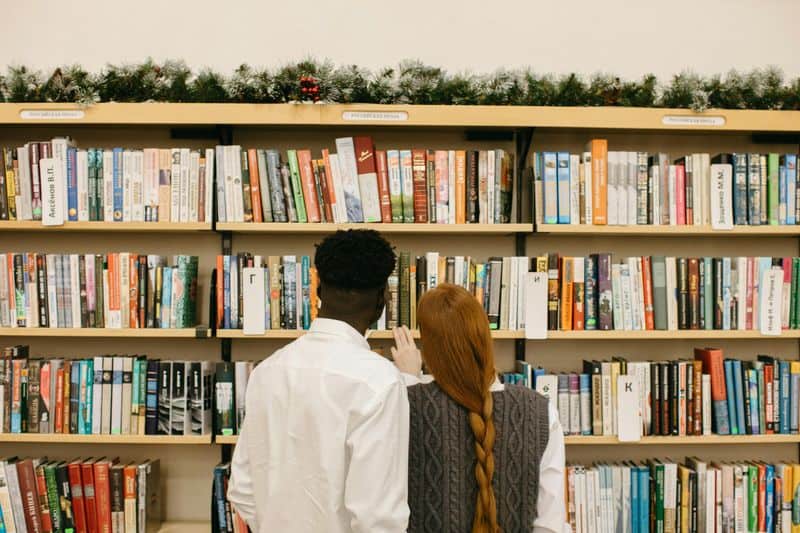Have you ever worried that something in your relationship might be a problem, only to discover it’s actually normal and healthy?
Many behaviors that get labeled as relationship ‘red flags’ are actually signs of a strong bond.
Understanding the difference between genuine warning signs and healthy relationship patterns can save you unnecessary worry and help you appreciate what’s working well between you and your partner.
1. Separate Hobbies and Interests
Spending time apart pursuing different activities isn’t a sign of growing distance—it’s actually relationship gold! Partners who maintain their own interests bring fresh energy and stories back to the relationship.
Having personal passions prevents the unhealthy merging of identities that can lead to codependency. You’re two distinct people with unique talents and curiosities.
Think of it this way: your relationship becomes richer when both of you have fulfilling lives outside of each other.
Those separate experiences become conversation starters and opportunities to support each other’s growth and happiness.
2. Having Regular Disagreements
Contrary to romantic movies, healthy couples don’t always agree on everything. Regular disagreements actually show you’re both comfortable expressing honest opinions rather than bottling up feelings to keep peace.
The key isn’t avoiding arguments but handling them with respect. Couples who can disagree while still listening to each other are building stronger bonds through these moments of tension.
Remember that zero conflict often means someone is constantly giving in or hiding their true feelings. Productive disagreements help you understand each other better and find solutions that work for both of you.
3. Needing Personal Space and Alone Time
When your partner says “I need some alone time,” it’s not rejection—it’s self-awareness! Everyone needs time to recharge, process thoughts, or simply enjoy their own company without explanation or apology.
This breathing room prevents the suffocation that kills many relationships. Partners who respect each other’s need for space often find their time together becomes more meaningful and intentional. The healthiest relationships balance togetherness with independence.
Your partner choosing solitude occasionally doesn’t mean they’re pulling away—it means they’re maintaining their emotional health, which ultimately benefits your connection.
4. Not Always Agreeing with Each Other’s Friends and Family
Your partner doesn’t click with your college roommate or disagrees with your mom’s political views? That’s completely normal! Having different opinions about each other’s social circles shows you’re maintaining independent thinking.
Strong couples don’t require their partners to love everyone they love. What matters is showing basic respect while allowing space for different connections and boundaries. Forced friendships often lead to resentment.
A partner who can politely engage with your loved ones while being honest about their own comfort levels demonstrates authenticity and healthy boundary-setting—qualities that strengthen your relationship’s foundation.
5. Maintaining Some Privacy and Personal Boundaries
Sharing your deepest secrets and showing your partner your text messages aren’t requirements for trust. Healthy relationships balance openness with respect for personal boundaries.
Everyone deserves private thoughts, conversations with friends, and personal digital spaces. A partner who understands this isn’t hiding something—they’re honoring the fundamental human need for privacy.
True intimacy develops when you choose to share yourselves with each other, not when you demand total access. The strongest relationships are built on trust that doesn’t require constant verification through surrendering all privacy.
6. Having Serious Money Conversations
Finding yourselves talking about budgets, savings goals, and spending habits? Congratulations! Financial discussions aren’t mood killers—they’re signs of a mature relationship where both partners plan for the future together.
Many couples avoid money talks until problems arise. Partners who proactively address finances show commitment to weathering life’s practical challenges as a team. These conversations reveal your values and priorities, creating deeper understanding between you.
Whether you agree on everything or not, the willingness to have transparent financial discussions builds a foundation for long-term stability and shared goals.
7. Taking Your Relationship Slowly
Moving at a comfortable pace isn’t a lack of enthusiasm—it’s wisdom! Relationships that develop gradually often build stronger foundations than whirlwind romances.
Taking time allows you to see each other in different situations and seasons of life. You learn how your partner handles stress, celebrates success, and navigates everyday challenges before making bigger commitments.
Slow-growing relationships give you space to develop friendship alongside romance. This patience often leads to deeper compatibility and fewer surprises down the road, as you’ve truly gotten to know each other before taking major life steps together.
8. Not Feeling Butterflies All the Time
Remember those stomach flips and heart races from your first dates? Their absence now isn’t a warning sign—it’s evolution!
The transition from nervous excitement to comfortable contentment marks relationship maturity. Long-lasting love transforms from rollercoaster thrills to something deeper: the security of knowing someone truly sees and accepts you.
This calm certainty provides a foundation that exciting butterflies never could. The best relationships develop a different kind of magic: the joy of ordinary moments together, inside jokes only you understand, and the peaceful feeling of being completely yourself with another person.
That’s the real treasure beyond the initial butterflies.
9. Discussing Past Relationships Openly
Hearing about your partner’s exes might make you squirm, but these conversations signal emotional maturity. People who can thoughtfully discuss past relationships have likely processed those experiences and learned from them.
These discussions help you understand your partner’s relationship patterns, triggers, and growth. They provide valuable context about what shaped the person you’re with today.
A partner who speaks respectfully about former relationships—neither idealizing nor demonizing exes—demonstrates self-awareness and emotional intelligence.
This openness builds trust by showing they’re not carrying unresolved baggage that might sabotage your connection.
10. Directly Addressing Problems Instead of Hinting
When your partner brings up issues directly instead of dropping hints or using the silent treatment, celebrate it! Straightforward communication might feel uncomfortable initially, but it’s the foundation of relationship health.
Direct problem-solving prevents small irritations from growing into major resentments. It shows respect for both your time and intelligence by not making you guess what’s wrong.
Partners who address concerns clearly demonstrate emotional responsibility and commitment to the relationship’s growth.
This directness might not always feel gentle, but it creates the clarity and honesty needed for genuine connection and mutual understanding.











